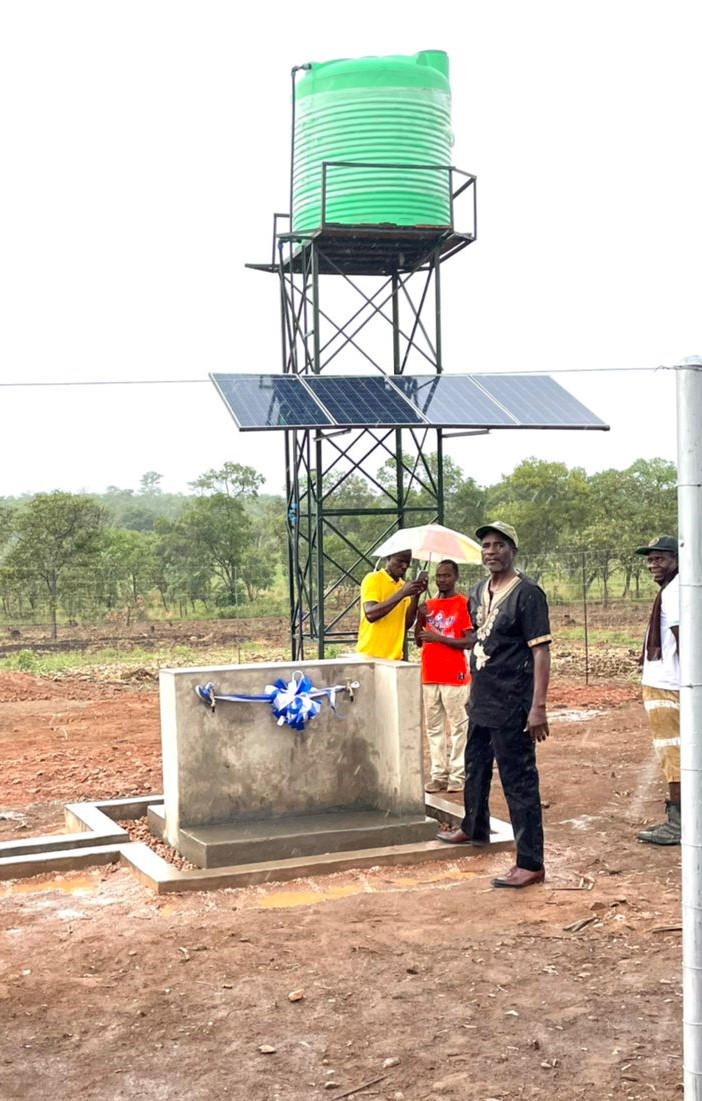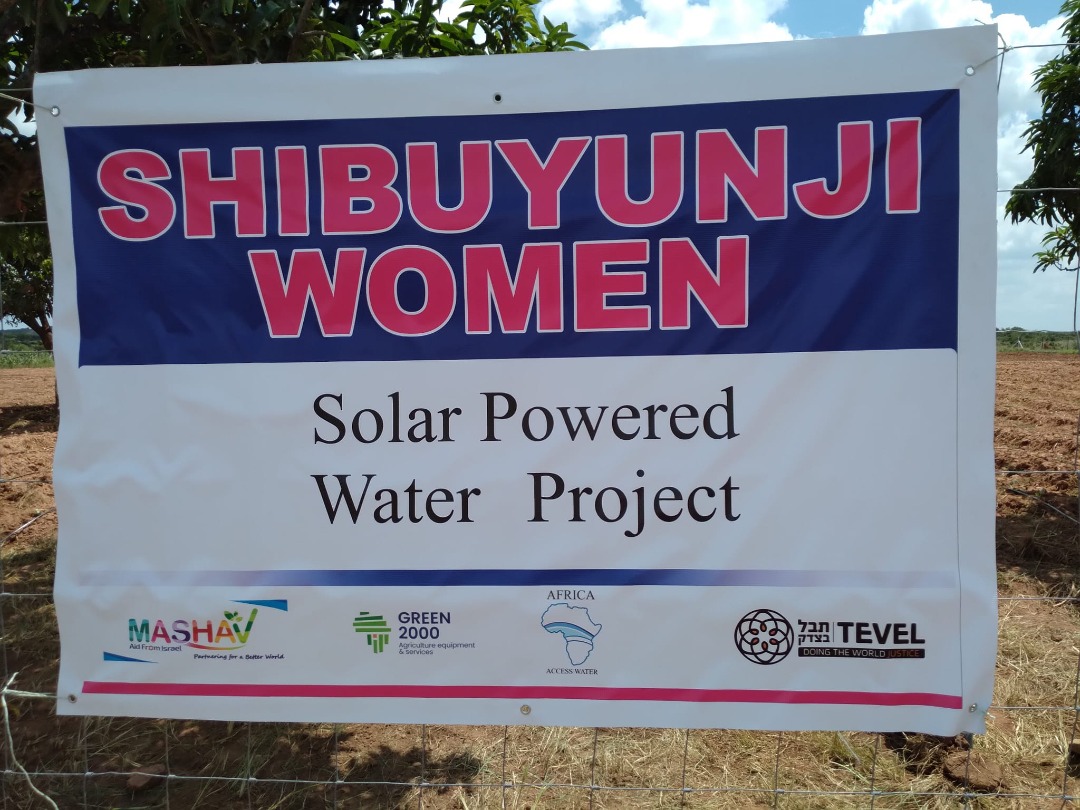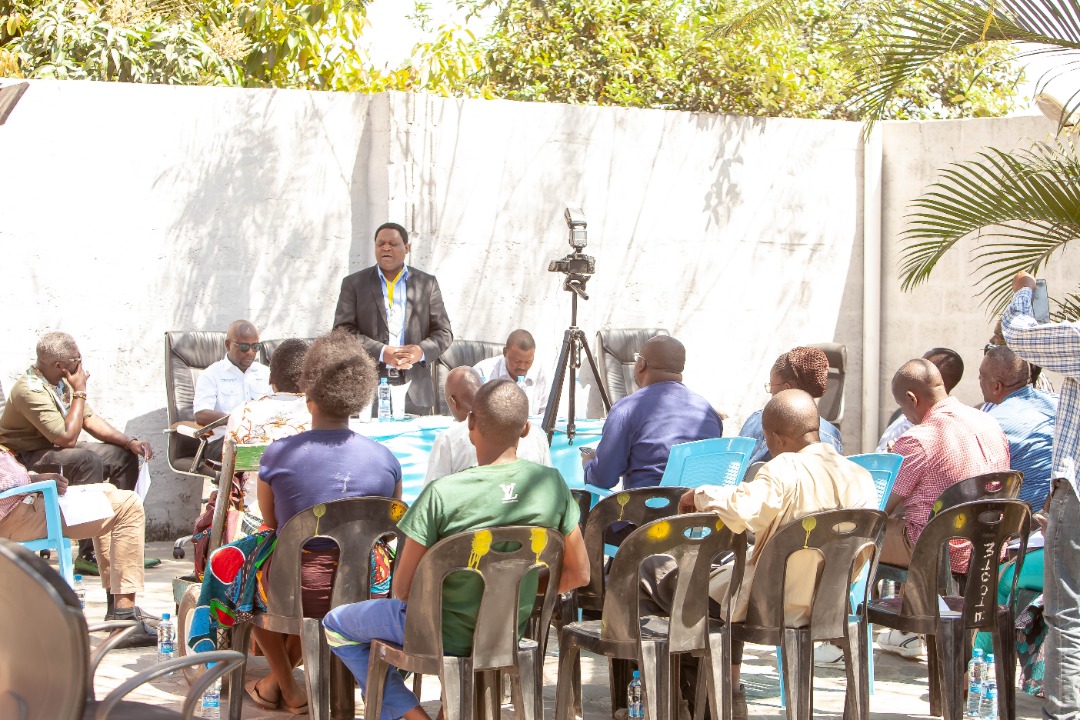
The Mphande Project
In partnership with Tevel b'Tzedek (An Israeli non-profit for community development
Tevel b'Tzedek (shortened: Tevel) we are implementing a project in Mphande that is improving
the livelihoods of rural communities through community work and solar powered irrigation
systems.
Mphande area and local communities Mphande area is located 30 km south of Lusaka, home to
over 5,000 people. This is a poor community with 3 villages which is close to the city of
Lusaka.
The cornerstone of the project is providing access to clean water, for drinking, irrigation,
and animal husbandry, by using solar pumps. The project is being implemented over 10
hectares of land. Providing water will enable the development of other activities that will
benefit the community. The following are the planned activities being executed
A training center and demonstration plots. Local farmers will receive
training to overcome local barriers to productive agriculture, like drylands cultivation,
seed production, and feed manufacturing. In addition, the center will offer financial
training and assistance in registering as agricultural cooperatives (to obtain funding and
agronomical assistance from the government).
A unique agricultural and financial training for women from particularly low
socio-economic backgrounds. Under the program, groups of women and community will
cultivate land creative community/village revolving fund. They will receive agricultural,
financial, and business training as well as assistance in registering as cooperatives. At
the end of the two-year program, each cooperative will save enough money to set up its
agricultural project.
Youth and young-adults income generation activities: Integration of youth and
young adults in income generation and community mobility activities in agriculture and
health.
Innovation Center: The center will serve as a focal point for innovations
and research focused on providing solutions for rural communities in Africa. The center will
showcase and test new agricultural technologies and methods by using demonstration plots.
The center will connect local government, civil society, academia, the Israeli AgroTech
ecosystem, the local private sector, and most importantly, rural communities of smallholders
themselves.
A post-harvest facility: Establish a crop bulking unit and, later on, a
processing unit for different crops and products.

Shibuyunji Women Solar Powered Water Project
The project provides water for drinking, agriculture irrigation, livestock and aquaculture
leading to food security, increased income and better livelihoods. The project set in the
middle of four (4) villages in Shibuyunji namely Shamilimo, Shambule, Shamakamba and
Mwenshakembe. So far 60 women allocated with 50mx50m portion of land and water running into
their fields, are benefiting from the first phase of the project focusing on irrigation and
vegetable growing and business.
The project is situated in Shibuyunji 50 Kilometers away from the capital city Lusaka of
Zambia. Shibuyunji is in agro-ecological region II-b of Zambia which is one of the places
worst hit with climate change, drought and in need for water both for drinking and
productive us.
Success stories have been recorded of the project with at least 40 women having a minimum of
$100 per month are supporting their families. This model of development shows that with an
investment of just $100 per women or household can create sustainable income for women
through solar-powered water systems for productive use. If the targeted 60 women can have a
total of $6,000 per month the four villages of Shibuyunji will create a strong rural economy
that will lift the villages from poverty to better livelihoods, health and wealth. Help
achieve this goal increased support in additional infrastructural support.
This project will be transformed in Centre of Excellence.
This project was received funding from different partners that included:
Baba Group of Companies – whose supported the intial water systems
AfAW UK office and Board Member – Supporting administration and more specifically Maurice
Dillon for his generosity supporting inputs for women
State of Israel through MashaV (Agency for International Development Cooperation).
Their support went towards the enhancing solar powered irrigation systems, an aquaculture
system and fencing of the women community training farm. Program design and operations for
the joint program was done through a partnership of an Israeli company Green2000 and NGO
Tevel b'Tzedek.

Community Preparedness on Floods and Disaster Risk Management.
The city of Lusaka has been affected by flooding mainly emanating from lack of serviced
land, speculation on land, complex procedures and lack of correct information of land use
and land ownership, lack of human resources, the slow pace of issuing security of land
tenure, the failure of effective master planning, increase in illegal settlements and
political inference in land allocation and poor waste management systems.
Every year during the rain season, there are perennial floods in Makeni Villa Ward 14 in
Kanyama Constituency thereby causing challenges such as impassable roads, waterborne
diseases, mosquito bleeding points to mention but a few. As an organization, it is our view
that there is need to implement measures to help alleviate or find adaptive means to the
problem.
The project’s goal is to have a prepared community to handle floods for improved
livelihoods.
Main Objective: To facilitate and promote community preparedness on floods and
disaster risk management in Makeni Villa Ward 14.
The project which has already started having consultation and engagement meeting with
different stakeholders hopes increase awareness on preparedness and create actions that
resolved the flooding challenges. And that flood should not be seen as a threat but if
harvested properly and letting the water path is important in replenishing recharge areas
that help communities to have water.
The project is working with the community, government and other non-government organization.
Furthermore, the project intends to have more of public commitment, knowledge development
and training including intervention that harvests water for socio and economic benefits.